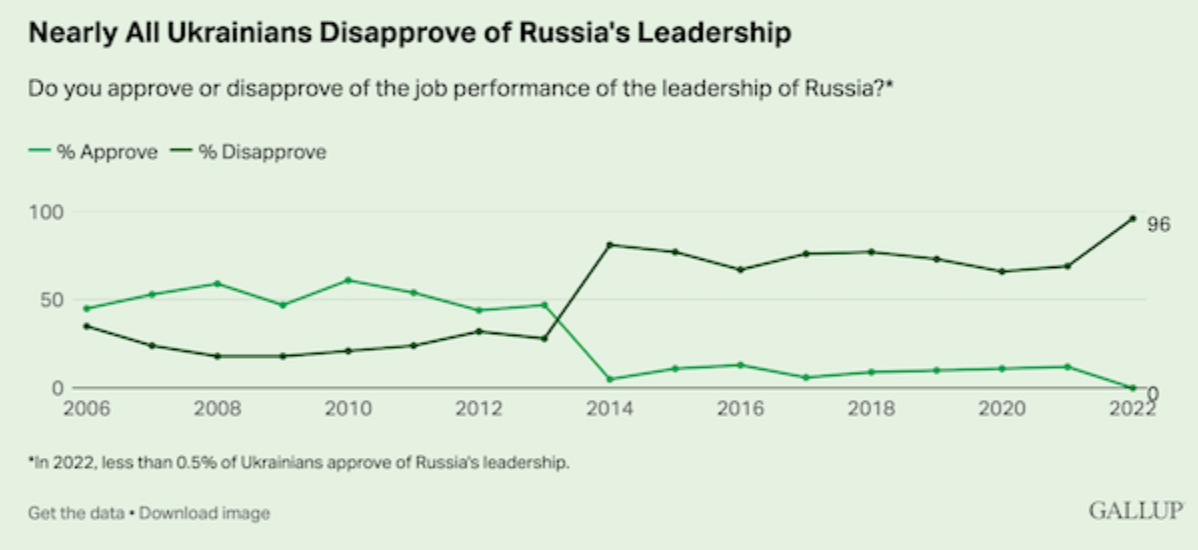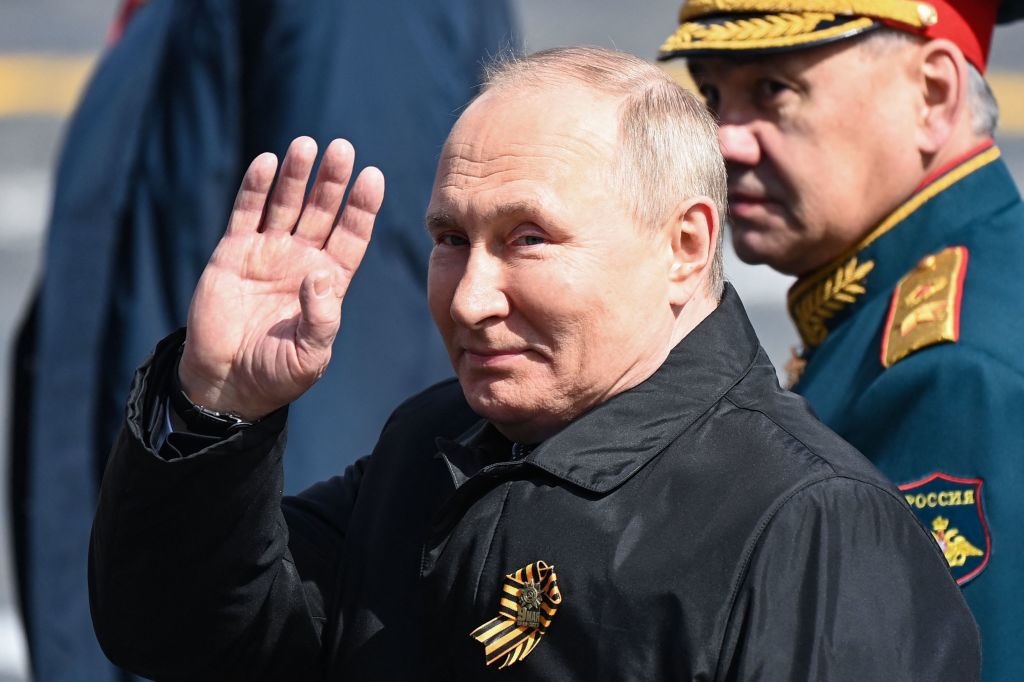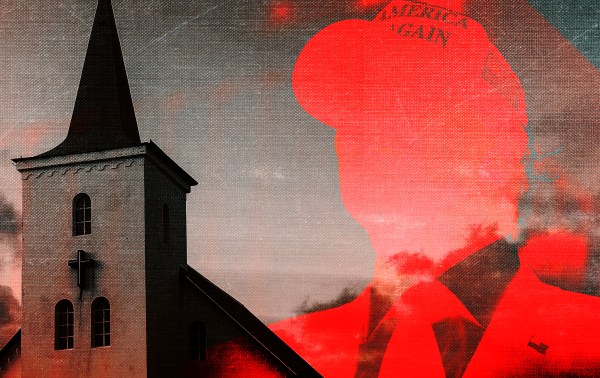On Thursday critic David Sims published his review in The Atlantic of Hollywood’s newest monster movie, a film he didn’t much like. One problem, he wrote, is that he couldn’t find any useful metaphors in a story about a bear in the woods that becomes intoxicated and sets off on a rampage, killing everyone in sight.
Really? I can think of one.
A year on from Russia’s invasion of Ukraine, the most arresting fact about the war remains that it was caused by a single man’s intoxication. The Financial Times alleged this week that practically everyone in Vladimir Putin’s orbit, up to and including his own foreign minister, didn’t believe he would give the order to attack until the order was given. Maybe that’s a case of the Times’ Russian sources rewriting history to remove their own fingerprints from a project gone disastrously wrong, but the details about Putin getting lethally high on his own supply of propaganda jibe with years of Western analysis about what motivates him.
Why, listen to this promising, clear-eyed young Republican congressman assess the threat in 2017.
The FT piece bears out his analysis about Putin wanting to reconstitute Russia’s imperial glory. Despite warnings from aides in the days before the invasion that the army in its present state wasn’t fit to reconquer Ukraine, the czar pressed ahead. Reportedly he had spent months during the pandemic holed up with nationalist cronies who kept whispering in his ear that it was his destiny to remake Russia’s borders.
After the decision to invade was announced, one frightened Russian oligarch asked the foreign minister, Sergei Lavrov, how Putin could have planned a major war with so few people—Lavrov included—in the know. “He has three advisers,” Lavrov replied, according to the FT. “Ivan the Terrible. Peter the Great. And Catherine the Great.”
Opinions may differ, but I’d rather have a fascist with a nuclear arsenal getting high on cocaine than on revanchist grandeur.
Russia’s war has cost Ukraine tens of thousands of human lives and trillions of dollars in damage and lost economic output. But on the first anniversary of the invasion, I find myself thinking of the moral damage Putin has done to his own allies, foreign and domestic. In the end, his inebriation will have wrecked more than one country.
If you need reminding of how wanton the destruction of Ukraine has been and continues to be, log into social media at any time and wait. Something will scroll by in short order that knocks you sideways.
We’re many months removed from Putin executing anything resembling a strategic plan to unseat Zelensky’s government. Lately the conflict has devolved into pointless battles aimed at nothing more than proving that Russia can still gain ground, at horrendous cost, and indiscriminate attacks on cities and infrastructure designed to make life as painful and terrifying for Ukrainians as possible.
Even the fantasist in the Kremlin has probably faced the reality by now that he won’t pacify Ukraine long-term. In Putin’s realistic best-case scenario, the West throws in the towel on providing weapons and the Russian army slowly grinds its way through Ukraine’s undersupplied forces. After hundreds of thousands more casualties on both sides, Putin finally extinguishes what’s left of a formal military opponent. At that point, to avert an insurgency against his depleted occupation force, he’ll need to somehow convince Ukrainians to get excited about being absorbed into a country that’s spent years killing its sons and raping its daughters.
He’ll have his work cut out for him.

That same poll found Ukrainians’ faith in their country’s institutions soaring from pre-war levels and, amazingly, found their interest in emigrating declining despite the hardships of war. Putin’s casus belli last year alleged that Russians and Ukrainians are culturally one people and should rightly be reunited, by force if necessary. A year later, he’s made ardent Ukrainian patriots out of nearly all of his victims.
And he’s transformed Russia in the process.
It feels strange to think that Russian civil society might be growing more depraved—when is it not?—but the pace of it since the war began has been dramatic. Recently the New York Times described the country’s devolution from a soft fascist state that pays lip service to certain liberal ideals to a harder fascist version that revels in militarism and illiberalism.
Museums and theaters, which remained islands of artistic freedom during previous crackdowns, have seen that special status evaporate, their antiwar performers and artists expunged. New exhibits put on by the state have titles like “NATOzism” — a play on “Nazism” that seeks to cast the Western military alliance as posing a threat as existential as the Nazis of World War II.
…
“Liberalism in Russia is dead forever, thank God,” Konstantin Malofeyev, an ultraconservative business tycoon, bragged in a phone interview on Saturday. “The longer this war lasts, the more Russian society is cleansing itself from liberalism and the Western poison.”
…
National television channels, all controlled by the Kremlin, dropped entertainment programming in favor of more news and political talk shows; schools were directed to add a regular flag-raising ceremony and “patriotic” education; the police hunted down people for offenses like antiwar Facebook posts, helping to push hundreds of thousands of Russians out of the country.
“Society in general has gone off the rails,” a worried high school administrator told the Times. “They’ve flipped the ideas of good and evil.” He’s not exaggerating: Everywhere you look, you’ll find Russian civil and cultural institutions normalizing depravity toward Ukrainians and their allies.
For instance: Traditional depravity in war is bombing the enemy’s cities to rubble. Next-level depravity is kidnapping children who lived in those cities and showing them off as war trophies at fascist rallies back home.
Traditional depravity in war is insisting that God is on your side, no matter how cruelly your forces behave. Next-level depravity is having the head of your church compare your soldiers to Jesus and proclaim that their sins will be forgiven if they die while trying to liquidate Ukraine. Or having your media house organs extol death as an optimal state: “Life is highly overrated. Why fear what is inevitable? Especially when we’re going to heaven. Death is the end of one earthly path and the beginning of another.”
Traditional depravity in war is punishing your returning POWs for letting themselves be captured instead of fighting to the death. Next-level depravity is executing those POWs on video by bashing their skulls in with sledgehammers and having the videos prove so popular among war supporters that the sledgehammer becomes a sort of national totem of glorious ruthlessness in pursuit of victory.
Traditional depravity in war is conscripting men who are physically or psychologically unfit and thrusting them into the conflict. Next-level depravity is throwing incarcerated prisoners into the fight and then rewarding them by releasing them back into society once they’ve served their tour of duty—even if they were convicted of murder or rape. “These are psychologically broken people who are returning with a sense of righteousness, a belief that they have killed to defend the Motherland,” one lawyer told the Times of the get-out-of-jail-free card. “These can be very dangerous people.”
As Russia has degraded morally, it’s also begun to degrade in more measurable ways. Western markets for its chief export, energy, have collapsed and may never recover. The country’s demographic tailspin has been made worse by tens of thousands of young men dying in battle and many more going into exile to avoid conscription. Basic infrastructure is suffering because of Western sanctions and domestic resources being diverted toward Ukraine.
When the war began, Ukraine’s allies hoped that civil discontent would grow and ultimately topple Putin. Instead Russian society is being remade, morally and otherwise, to accommodate his intoxicated illusion about empire. The cognitive dissonance between “the war is obviously evil and self-destructive” and “we must be good patriots and support the war” has been resolved: Actually, being evil and self-destructive is patriotic.
The Russian state may or may not survive the forces Putin has unleashed on it. But however and whenever the war ends, Russians will have lost vastly more than they end up gaining. I can’t think of a better definition of “strategic disaster.”
The country’s descent into inebriated manic depravity has also corrupted its Western apologists—to a point. Unlike in Russia, in America you can’t chortle at videos of Ukrainians getting blown up at train stations or POWs having their heads sledgehammered into paste and expect to participate in mainstream media. Even Fox News primetime wouldn’t condone that. I think.
The immorality of attacking Ukraine was and is so clear, in fact, that most Russia simps in the U.S. didn’t bother trying to justify it in the run-up to war last year. They spent their time insisting that White House warnings of an impending invasion were alarmist nonsense designed to spook the world about Russian belligerence. A “cocaine bear”? Why, the very idea is preposterous.
They’ve spent every day since regretting their naivete and flogging Russia mercilessly for its ongoing crimes against the Ukrainian people. No, I kid: They’ve spent every day since repositioning themselves as “anti-war” even though they’re aligned with the side in the conflict that could stop the war instantly and unilaterally by withdrawing—yet chooses not to. In that context, bleats about a “peace deal” are little more than doublespeak aimed at pressuring Ukraine to offer territorial concessions that will let Putin save face and finally make withdrawal worth his while.
What unites all variants of the “anti-war” argument is the notion that the war is something that’s being done to Russia rather than something Russia is doing to someone else. Just last night, for example, this secessionist turned up on (where else?) Fox News primetime to lament bipartisan support in the United States “for this war against Russia in Ukraine.”
I’m tempted to ask her if she would have opposed “the war against Germany in Poland” during World War II but I fear what the answer might be.
Other “anti-war” populists have cried crocodile tears about Ukraine’s hardships while implying that the United States is contributing to them rather than alleviating them. “A lot of Americans are asking, ‘How much more money? How much more time? How much more human suffering?’” Fox host Lisa Boothe complained recently. She meant to suggest that Ukrainians might suffer less if Joe Biden and his warmongering party stopped thrusting weapons into their hands and goading them to defend themselves, never mind what happened earlier in the war in places where the locals found themselves at the mercy of Russian soldiers. Or that majorities in every region of Ukraine believe the country should keep fighting until it wins.
Every day for the past year, the Ukrainian government has begged the United States for more, and more sophisticated, munitions. To ignore that and insist that the policy that will produce the least “human suffering” involves Ukraine being disarmed, you need to be awfully committed to populist authoritarianism.
Lately, some “anti-war” types have pivoted away from claiming that the weapons aren’t wanted and/or necessary and toward more basic “America First” argle-bargle.
There’s no reason it can’t be the party of both, as there’s no shortage of wasteful spending in the federal budget that Republicans might cut to pay for aid to East Palestine. (Start with some of those bloated “woke programs” I keep hearing so much about.) Most of Hawley’s Republican colleagues in Congress would say that the GOP is the party of both, I suspect, although the ones who need to worry about their next primary might say it off the record. Hawley is presenting a false choice not because he worries that East Palestine will be given short shrift by the feds but because he’s a post-liberal isolationist who resents seeing the United States take sides with the wrong team in Russia’s war. “East Palestine, not Ukraine” is a pretext to weaken the military vanguard of Western liberalism on pseudo-patriotic grounds.
These people like to call themselves “realists.” But in all three examples of populist apologetics here, fantasy begets fantasy.
Putin’s intoxication about restoring Russia’s empire has crashed strategically, morally, and militarily. His army can’t take Ukraine; even if it could, wars of conquest are broadly condemned in the 21st century; even if they weren’t, the brutal Russian way of war would bleed international support for his campaign. All of that leaves Western excuse-makers unable to defend his war forthrightly, so they’re stuck inventing unpersuasive fantasies of their own (“we’re prolonging the suffering!”) to justify their anti-anti-Russia position.
I’ve made this point elsewhere but it bears repeating: Not one person who has objected to aid to Ukraine on “America First” grounds would change their basic rooting interest in the war if the United States cut provisions to the Ukrainians tomorrow. Sending HIMARS to East Palestine instead of Kyiv won’t lead Tucker Carlson to start earnestly covering reports of Russian atrocities. It won’t lead Josh Hawley to spearhead private charitable efforts to raise money for suffering Ukrainians. They’ll simply retreat into stupider illiberal fantasies, like how a “national divorce” might be in everyone’s best interest.
Seriously, if you think “America Firsters” dislike Ukraine, wait until you hear them talk about America.
A year to the day after Russia invaded, we’re left with a war in which the outcome has grown fuzzier over time while the moral stakes have grown clearer. That’s the point isolationists should be hammering if they want to pull the plug on Ukraine, that the fight has become a “frozen conflict” destined for stalemate and therefore the U.S. should cut bait rather than continue to throw resources down a sinkhole. But because Putin and his country are blissed out on depravity, refusing to abandon the “Russian way of war,” his allies in the West keep butting up against the wider public’s ongoing righteous outrage at Russian cruelty. Even when it’s obviously in Russia’s strategic interest to refrain from targeting civilians in Ukraine and fighting a “cleaner” war, they can’t. They’re addicted, high as a kite on ruthless expansionist cruelty. Keep making them suffer for it.







Please note that we at The Dispatch hold ourselves, our work, and our commenters to a higher standard than other places on the internet. We welcome comments that foster genuine debate or discussion—including comments critical of us or our work—but responses that include ad hominem attacks on fellow Dispatch members or are intended to stoke fear and anger may be moderated.
With your membership, you only have the ability to comment on The Morning Dispatch articles. Consider upgrading to join the conversation everywhere.